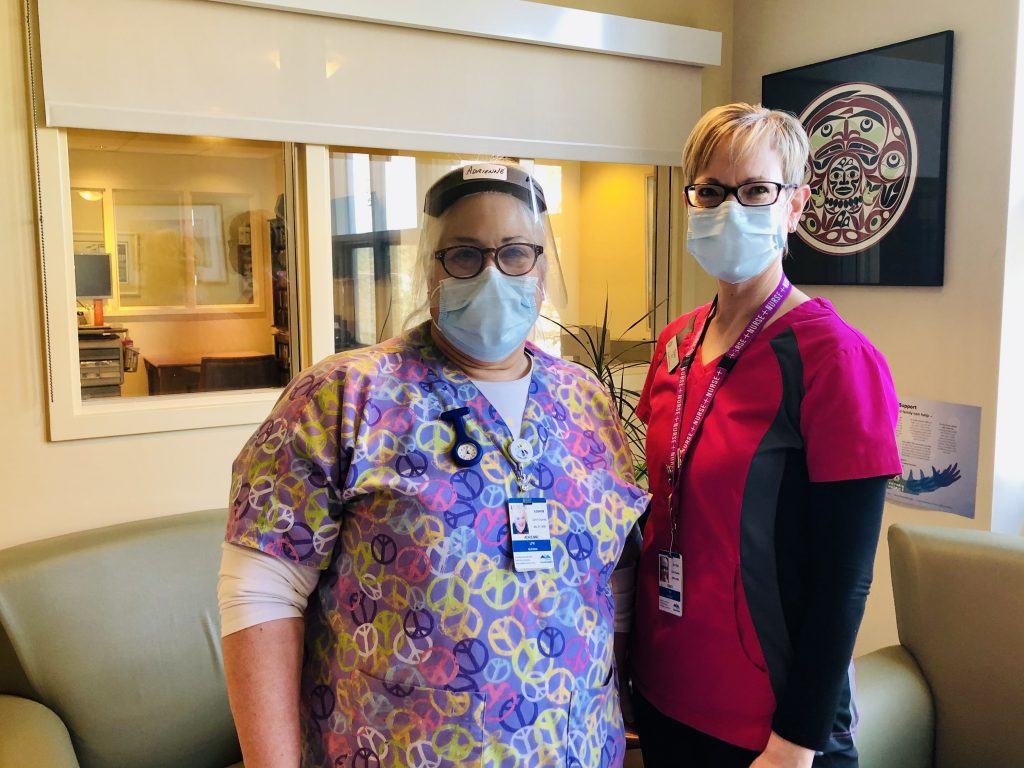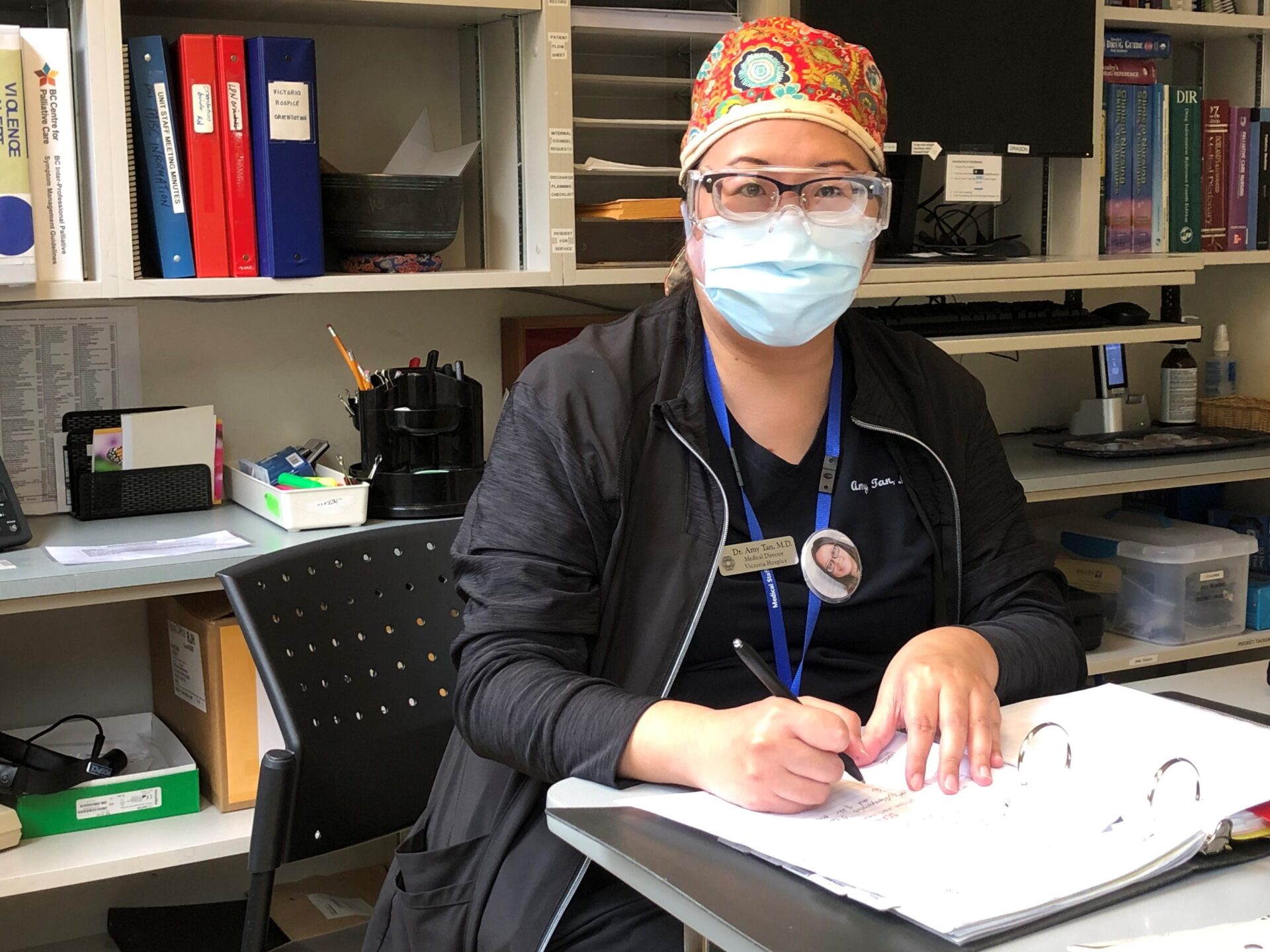Everyone has a pandemic story. For people facing death and bereavement, the pandemic plot twist has been heart-wrenching.
Visitor restrictions, so important for everyone’s safety, can seem at odds with what palliative and hospice care is all about.

“Palliative care isn’t only about managing symptoms and making people physically comfortable. It’s about closeness and humanity. It’s about helping families through the hardest days of their lives,” says Victoria Hospice Medical Director Dr. Amy Tan.
“Masks and face shields and goggles and PPE seem to separate us. Physical distancing keeps us apart. Barriers seem to spring up just when patients and families need to be closer than ever.”
The staggering effect of the pandemic on the health care system tops the headlines every day. But Victoria Hospice physicians, nurses and counsellors are reporting on the lesser-known effects on people facing end of life, their loved ones, and bereaved people.
“The massive impact of COVID-19 on the health care system includes palliative care,” says Victoria Hospice CEO Kevin Harter. “Hospice and palliative care teams everywhere are being called upon to meet unprecedented challenges. I’m so proud of our team at Victoria Hospice – despite the pandemic challenges, they’re standing strong and providing the highest quality compassionate end-of-life care people need right now.”
With half its funding provided by donations, Victoria Hospice is calling on supporters to help the organization write a new chapter of resilience in its Frontline of Compassion appeal.
“Our supportive community has been absolutely essential to our services for more than 40 years,” says Harter. “In these difficult times, their help is more important than ever.”
Many patients are choosing to stay at home longer in their disease process or until their death because of COVID-19 restrictions. That means the Victoria Hospice Palliative Response Team addresses more complex symptoms and psychosocial needs than ever before.

“Palliative care isn’t only about managing symptoms and making people physically comfortable. It’s about closeness and humanity. It’s about helping families through the hardest days of their lives.”
— Dr. Amy Tan, Medical Director, Victoria Hospice
Isolation triggered by the pandemic comes at such a poignant time in the lives of patients and families.
“Victoria Hospice bereavement counsellors are meeting a tsunami of grief right at our front door,” says Director of Psychosocial Services Marney Thompson.
“We know grief has been painfully magnified by the pandemic. Suffering is amplified by people’s extraordinary experiences of illness and death – and sometimes a lonely death. Even well-resourced people who might otherwise be able to navigate grief with informal support from friends and family are now seeking professional bereavement support and counselling.”
Last year, Victoria Hospice provided compassionate end-of-life care to more than 1,000 people on the clinical unit and at home. Over the next 20 years, the number of aging adults 75 and older expected to more than double in Greater Victoria and almost triple in the Western Communities.
“While we’re working hard to meet the present need, we’re closely monitoring these trends and looking to ways we can address the demand for palliative care in the future,” says Harter. “We’re so grateful to our donors for walking alongside us every step of the way.”